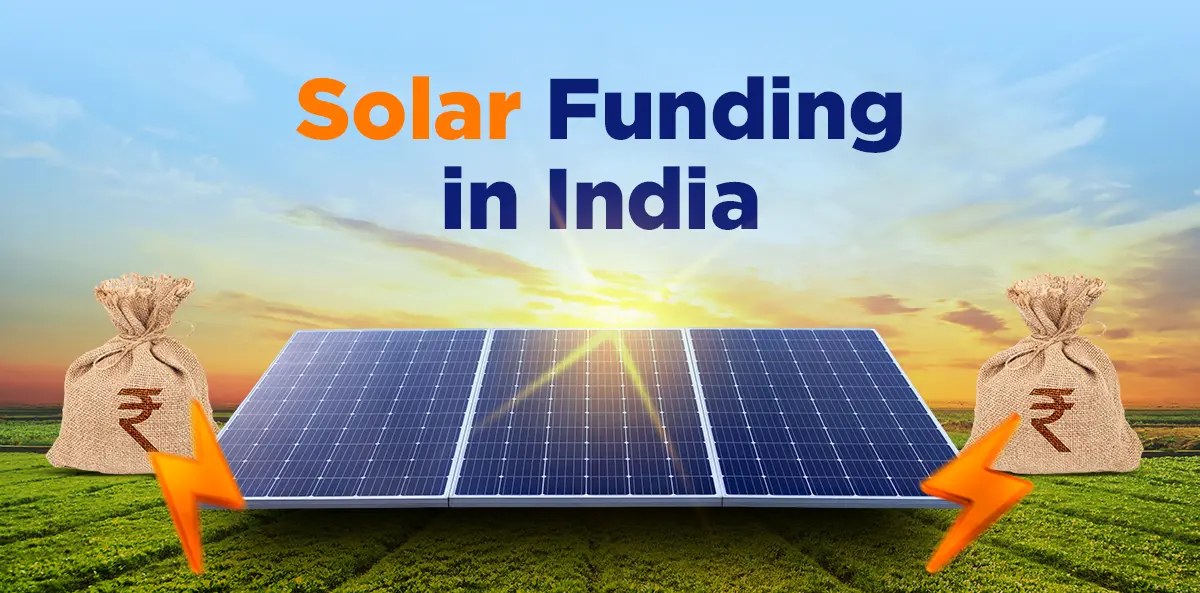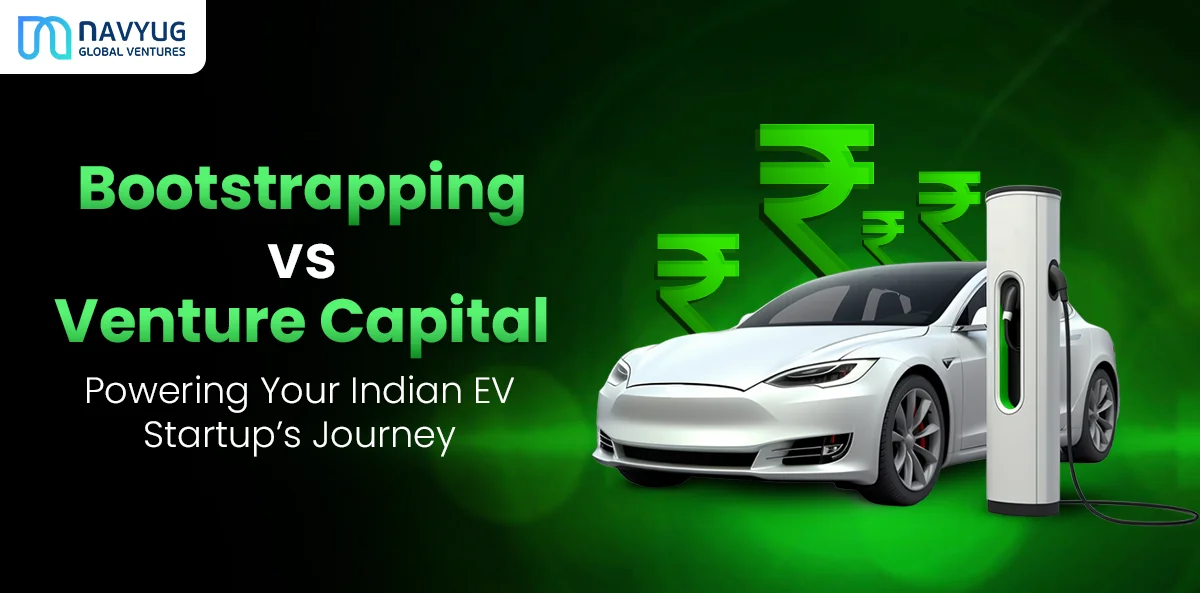1. Types of Solar Funding Available in India
- Equity Funding
Equity financing is one of the most popular avenues for solar startups.
Venture capitalists in Chennai and across India are keenly interested in solar energy businesses that show potential for high returns. Equity funding typically involves selling a portion of the company’s shares to investors in exchange for capital. This method allows startups to access significant funding without the burden of immediate repayments.
For example,
Navyug Global, a prominent
renewable energy private equity investors in Chennai, India, specializes in providing early-stage and growth-stage funding to solar and renewable energy startups. By leveraging their expertise and industry connections, they not only invest capital but also offer strategic insights to help scale these businesses.
- Debt Financing
Debt financing involves borrowing funds, typically from financial institutions, to be repaid over time with interest. Banks and green energy funds are increasingly providing loans specifically designed for the solar sector. These loans can be used for installing solar infrastructure, expanding operations, or implementing new technologies.
While debt financing requires consistent repayment, it offers the advantage of allowing companies to retain full control over their operations, unlike equity funding. Many government-backed programs also offer preferential loan rates for renewable energy projects, making this an attractive option for established solar businesses.
- Government Grants and Subsidies
Government policies supporting
solar financing in India have been crucial in promoting renewable energy. Various central and state government initiatives provide grants, subsidies, and incentives for solar energy startups. These programs are designed to offset the high initial capital expenditures typically associated with solar installations.
For instance, the Indian government’s “Rooftop Solar Program” offers financial assistance to both individuals and commercial enterprises. Entrepreneurs should explore these schemes, as they can significantly reduce the financial burden on early-stage solar projects.
- Crowdfunding and Green Bonds
Crowdfunding has emerged as a modern alternative for
solar sector funding in India. Platforms such as Kickstarter or Indiegogo allow startups to raise small amounts from a large number of investors, particularly for innovative solar solutions. This funding model not only provides capital but also creates a community of engaged supporters who are invested in the project’s success.
Green bonds are another rising trend. These debt instruments are specifically designed to raise funds for environmentally-friendly projects, including solar energy. Corporations and governments issue green bonds, and they are gaining popularity among investors looking to support sustainable initiatives.
2. Challenges in Securing Solar Funding in India
While the opportunities for
renewable energy financing in India are abundant, there are also several challenges that solar entrepreneurs must navigate:
- High Upfront Costs
Solar installations and the associated technologies require significant capital investment. Whether it’s installing solar panels, setting up storage facilities, or developing new technologies, the initial costs can be prohibitive for many startups. This makes it challenging to secure traditional financing without a solid track record or clear scalability plans.
- Regulatory Uncertainty
Government policies and regulations regarding the solar industry can be complex and subject to change. Investors are often wary of committing large amounts of capital to businesses operating in a sector that depends heavily on government subsidies and policies. Startups need to demonstrate that their business models are resilient to potential regulatory shifts.
- Demonstrating Scalability and Innovation
Investors, particularly
renewable energy or
solar venture capitalists in Chennai and other financial hubs, are looking for solar companies that can prove their scalability and innovative edge. Simply having a good idea isn’t enough. Entrepreneurs need to show how their technology or business model can grow rapidly, meet market demands, and generate significant returns on investment.
3. How Navyug Global Supports Solar Startups
Navyug Global, a leading PE funds that have made investments in Indian renewable energy companies, understands the unique challenges faced by
solar energy startups in India. With their focus on early-stage and growth-stage funding, Navyug Global offers more than just capital; they provide mentorship, market insights, and access to a network of industry experts.
Here’s how Navyug Global nurtures solar startups in India:
- Expert Guidance: Navyug Global works closely with solar entrepreneurs to refine their business models, making them more attractive to investors.
- Strategic Partnerships: Leveraging their extensive network, Navyug Global connects startups with potential clients, suppliers, and strategic partners who can accelerate growth.
- Financial Support: Their funding is designed to help startups overcome the challenges of high upfront costs, enabling them to focus on innovation and market expansion.
For solar startups looking to secure
solar funding in India, Navyug Global offers a pathway to scale their operations and establish themselves as leaders in the renewable energy space.
4. Key Considerations for Securing Solar Funding
Securing
solar sector funding in India requires more than just a great idea. Entrepreneurs need to take the following into account:
- A Comprehensive Business Plan
Investors want to see a detailed business plan that outlines the company’s goals, financial projections, and market strategy. Highlighting how the company will scale and remain profitable is crucial for attracting both
venture capitalists in Chennai and other investors.
- Focus on Innovation
In a competitive industry like solar energy, innovation is key. Startups need to demonstrate how their technology or service offers something new and valuable to the market. Whether it’s a unique approach to solar storage or an innovative installation method, innovation is what will attract investors.
- Building the Right Network
Networking is critical in the solar industry. Entrepreneurs should actively seek out strategic partnerships with suppliers, governments, and other stakeholders. Connecting with the right venture capital firms, like Navyug Global, can also open doors to new funding opportunities and industry insights.
5. Conclusion
The solar energy industry in India is poised for tremendous growth, but accessing the right funding is essential for startups aiming to scale. Whether through equity financing, government subsidies, or debt financing,
solar funding in India is available for those with innovative solutions and a solid business plan.
By partnering with firms like
Navyug Global, a leading
solar venture capital company in Chennai,
India solar entrepreneurs can access the financial support and strategic guidance they need to navigate the complexities of the renewable energy market. With the right funding and mentorship, solar startups can contribute to a greener and more sustainable future.




